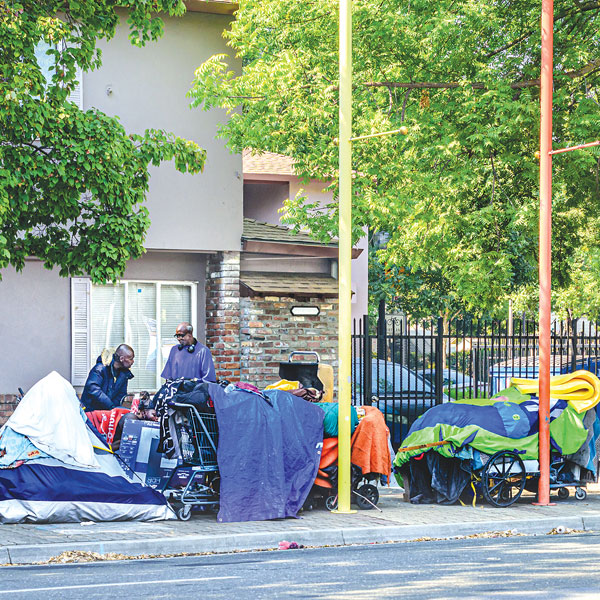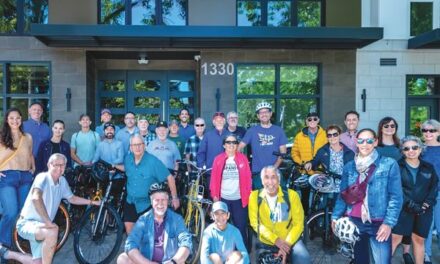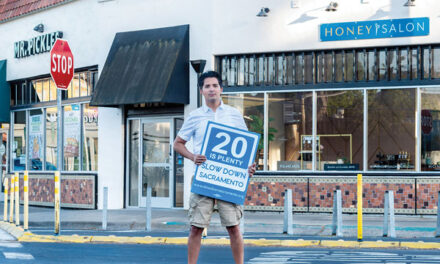An October column in The New York Times called attention to California’s “epidemic of homelessness that seems to defy all attempts to fix it.”
Clicking on a link in the text, readers were directed to a Los Angeles Times article headlined: “This was supposed to be the year for California’s homeless. Instead it’s a slow train wreck.”
All true, but don’t expect the dire observations to discourage Sacramento Mayor Darrell Steinberg, who has invested more political capital on this issue than most California mayors.

When Steinberg vowed in 2017 to find shelter for 2,000 homeless people by 2020, there were more than a few skeptics. City data show Sacramento has handily surpassed the target.
That was before COVID-19 changed everything.
“I don’t know if it’s gotten worse or not,” Steinberg says. “It appears to be worse. The problem remains, in part, because the people becoming homeless outnumber the people we’re getting off the streets.”
Since the pandemic hit, scores of businesses have closed, thousands of jobs have been lost, yet rents are spiking again in Sacramento in large part because people are fleeing the Bay Area.
“That’s one of the parts of it that rarely gets talked about,” Steinberg says. “That’s poverty, that’s high housing costs, that’s loss of jobs. Yes, that’s mental health and substance abuse as well, but there is a significant economic piece to this.”
By the mayor’s account, he has brought more than $100 million into the city to attack a problem confounding mayors and cities across the country.
A new shelter for women has opened in Meadowview, though Steinberg was frustrated it took 14 months to get it done. The city has benefitted from Gov. Gavin Newsom’s ambitious Project Roomkey and Project Homekey initiatives that put several thousand homeless people into local motels and hotels.
Two-thirds of the costs for those programs have been covered by FEMA, the Federal Emergency Management Agency, as part of the national response to the COVID-19 pandemic. But some businesses and residents who live near the hotels and motels have complained about the behavior of their new neighbors.
Steinberg, who Newsom named co-chair of the governor’s Homeless and Supportive Housing Advisory Task Force, led the charge in August to win City Council approval to spend up to $62.3 million in state and federal funds on homeless projects. Included in the list is $4 million for Steinberg’s plan to put tiny homes on sites around town.
But Steinberg knows federal assistance is limited. It will never be enough to eradicate the problem, though he believes a President Joe Biden would do much more to attack the issue than President Trump.
One current frustration has been resistance from the Trump administration to Sacramento’s plans for a 100-bed sprung shelter at Alhambra and X Street, where Steinberg says, “The problem is horrendous.” Sprung shelters stretch durable tension fabric over metal frames and can be erected in weeks.
Steinberg has been calling for a new approach to homelessness. He wants public policy that treats homelessness as a public health emergency, just as California declared a public health emergency with COVID-19.
“What I’ve argued at the state level, somewhat imperfectly, is that cities and counties have a legal obligation to bring people indoors. The (Newsom) administration and others haven’t preferred that approach, but there is something out there that we’ll work on with the governor and Legislature that presents a clear north star that is tantamount to ‘we must do this and we must have a housing and services solution to everybody that is out on our streets in California.’”
Without that hard commitment, Steinberg believes the public will see pilot program after pilot program. Progress will be hard to track.
If we do get to the point where cities and counties are legally obligated to bring people in off the streets, Steinberg wants the obligation to work both ways. Homeless people offered safe shelter should be obligated to take it, but current laws make that extremely difficult.
“I fundamentally believe that housing should be a right, but I also believe that we ought to have a public policy in this state that says it’s OK under no circumstances to have people live out on the street,” Steinberg says. “That if people are offered a safe place to come in, there ought to be some obligations that come with that.”
Unfortunately, homelessness in America has proven to be an issue that no matter how much progress is made, there always seem to be more people with nowhere to live.
Gary Delsohn can be reached at gdelsohn@gmail.com. Follow us on Facebook, Twitter and Instagram: @insidesacramento.
















